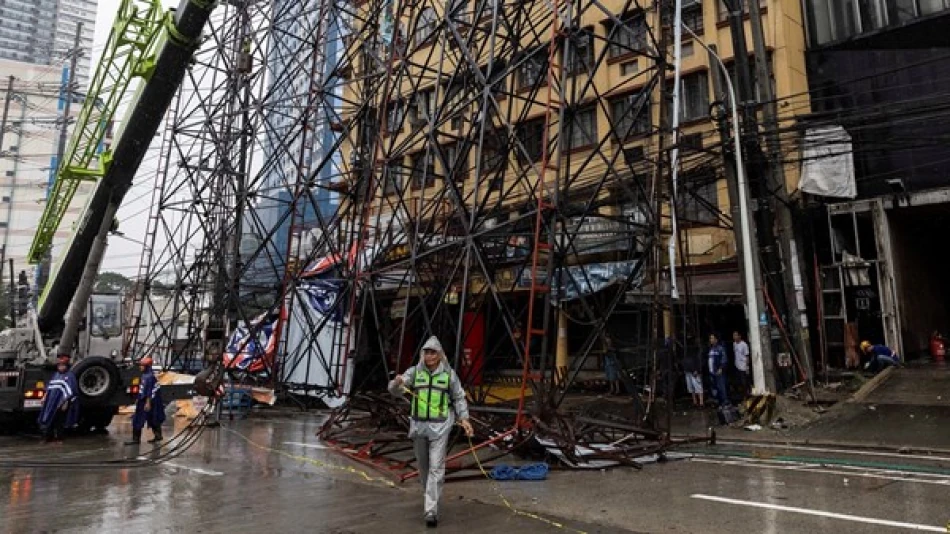
Hong Kong Issues Tropical Storm Warning Amid Approaching Weather System
Typhoon Yifa Paralyzes Hong Kong Aviation as Financial Hub Braces for Economic Disruption
Hong Kong has issued its third-highest typhoon warning as Tropical Cyclone Yifa approaches, forcing the cancellation of over 250 flights and school closures across the financial hub. The storm, currently 280 kilometers southeast of the city, threatens to disrupt one of Asia's busiest aviation corridors and trading centers during a critical period for regional commerce.
Storm Intensifies as Regional Alert Spreads
The Hong Kong Observatory issued a T8 typhoon warning at 16:20 GMT Saturday, predicting sustained winds of 63 km/h or higher, accompanied by severe squalls and torrential rainfall. Yifa is expected to strengthen further as it moves through the northern South China Sea toward China's Guangdong Province coast.
The storm's trajectory puts it on a collision course with one of the world's most economically vital regions. Guangdong Province, home to manufacturing giants Shenzhen and Guangzhou, alongside Hainan Province, have been placed on high alert according to China's Xinhua news agency.
Aviation Hub Faces Extended Shutdown
Hong Kong International Airport, the world's eighth-busiest by passenger traffic, has cancelled more than 250 flights with no expectation of resumed operations before Sunday afternoon. This disruption strikes at the heart of Hong Kong's role as a gateway between China and global markets.
The extended closure threatens to ripple through supply chains that depend on Hong Kong's strategic position. Unlike Singapore's Changi or Dubai International, which have geographic advantages during storm seasons, Hong Kong's airport faces annual typhoon disruptions that can cost the territory millions in lost business and delayed cargo shipments.
Economic Implications Beyond Weather
For Hong Kong's already-pressured economy, typhoon disruptions compound existing challenges from geopolitical tensions and competition from mainland Chinese financial centers. The territory's GDP contracted in recent quarters, making any disruption to its aviation and logistics sectors particularly costly.
Schools across Hong Kong have suspended operations, affecting working parents and adding to the economic impact. This follows established protocols that prioritize safety but inevitably slow business activity in a city where efficiency drives competitiveness.
Regional Impact Extends to Philippines
The storm's destructive path has already claimed lives, with Philippine authorities reporting two fatalities as Yifa passed through their territory. This underscores the cyclone's intensity and potential for significant damage as it approaches more densely populated areas.
The Philippines regularly faces multiple typhoons annually, but each storm that strengthens in the South China Sea poses escalating risks to the economic powerhouses of southern China and Hong Kong. Climate patterns suggest these intense weather events may become more frequent, forcing regional governments to invest heavily in resilient infrastructure.
Market Resilience Test
Hong Kong's response to Yifa demonstrates both the territory's preparedness systems and its vulnerability to natural disruptions. While the T8 warning system provides crucial advance notice, the economic cost of shutting down a major international hub highlights the delicate balance between safety and commerce that defines modern Asian financial centers.
As climate change intensifies storm patterns across the Pacific, Hong Kong's ability to maintain its competitive edge may increasingly depend on how quickly it can recover from such disruptions compared to rival financial hubs that face different natural challenges.
Most Viewed News

 Layla Al Mansoori
Layla Al Mansoori






